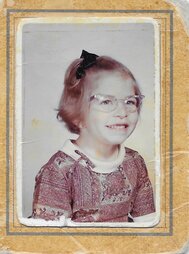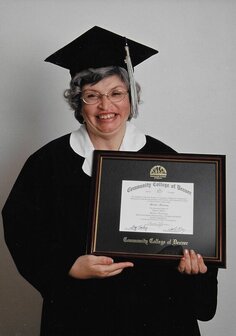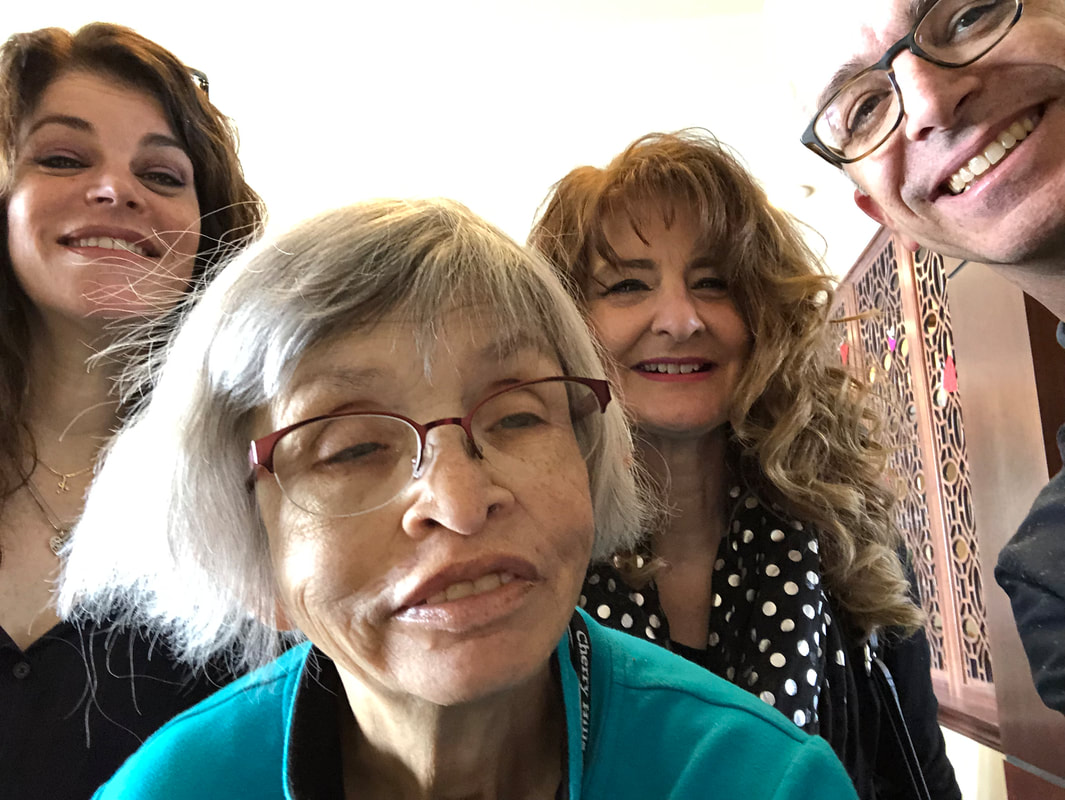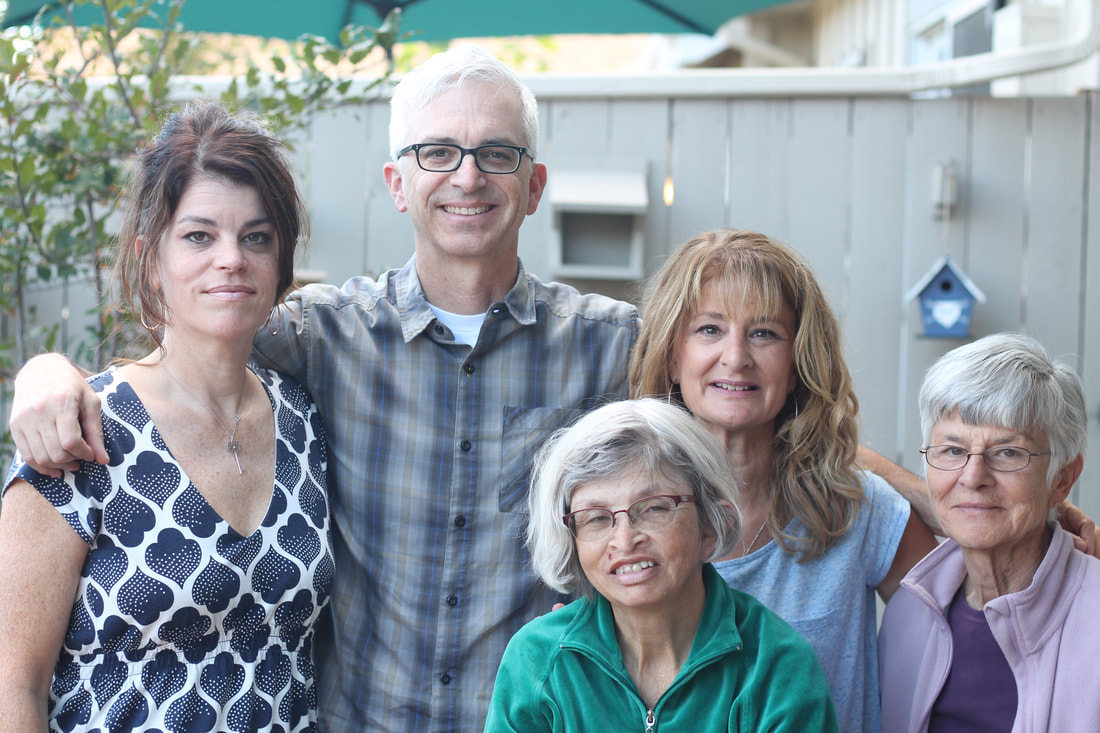|
Her effort to blend in and become unremarkable has been herculean. My sisters Michele and Cheryl, and my brother, Ken, and I were on a Zoom call Saturday night to plan the online memorial for our mother, who died the end of August. There had been a small funeral in Denver in September, but we were now getting around to planning the online service so more people could attend in the midst of a pandemic. On my last visit to Colorado in December, 2019 I had gone to the cemetery across from our old junior high school. Our mother had Alzheimer’s and she was declining. No plan had been made for a service, and I wanted one. I rarely took control of anything around my mother’s life as our stepfather had complete control and was an immovable force. I wanted a place where I could visit her, quietly, alone and know part of her was there. I wanted something permanent. The cemetery gave me the information about internment of her ashes in the ground. I told my stepfather this is what I wanted, for some of her ashes to be put there. He said no at first, but eventually relented. So my siblings were there at the masked, socially-distanced funeral that I had wanted while I was on Facetime 2,000 miles away in my living room in New York. At least it didn’t cut out. I wrote a passage that my brother read out for me. Cheryl wrote a eulogy that included all the events of mom’s life, all the good things. She didn’t write about the havoc our stepfather created in our lives, and continues to create, and how we often (sort of jokingly) refer to our family, as not one. Michele's contribution was choosing the pastor from her church who officiated. Like so many other families who have had funerals during this pandemic there was no process of people gathering, absorbing each other’s grief, remembering, bringing food, and just sitting quietly together. I sat in my apartment frozen, stymied, wishing I was there, feeling like a coward for not getting on a plane, and feeling like a child for thinking that indulging my feels and traveling would even be a good idea. Michele, who is mentally disabled, lives in the same assisted living facility where our mother had lived for the past couple of years. Michele had lived alone since her early 20’s, but in the last year and a half, now in her early 60’s, she has needed help, so she moved in there. Since the pandemic began Michele has been primarily living in a state of isolation. She was able to visit our mother before she died, but those visits were isolating in themselves as Mom really wasn’t present anymore. The facility has gone through various phases of lock down, allowing outside visits, not allowing them, and quarantining all residents in their rooms. At this moment, November, there are some cases of Covid in the facility so Michele is quarantined to her room, and understandably feels oppressed by the restrictions. On Saturday night while we were all sitting on Zoom together a health-aid came in for the routine temperature check and Michele’s was 102, alarming to say the least. Michele didn’t look like she had a fever, she wasn’t lethargic or flushed. But her chromosome abnormality which caused her mental disability and a variety of health problems throughout her life is tricky. Michele could have a health problem that does not register in a predictable way and she also has a flat affect that wouldn’t necessarily let us know how she was feeling. The health-aid left quickly. The four of us continued talking. I was hoping it was a mistaken reading and that was that. The health-aid was back in minutes with full PPE this time and said she needed to take Michele’s vitals. The aid saw the screen with the three of us watching and partially closed it, but Cheryl and Ken and I could still hear everything going on. Oddly, we attempted to carry on our conversation about Mom’s memorial, the way people try to act like nothing horrible is happening when it seems like it might be. Michele came back to the computer and the aid left. We didn’t get any information about her vitals. Cheryl suggested Michele take off the heavy bathrobe she had on over her clothes. Ken suggested Michele go and get the thermometer she has in her bathroom. Michele’s balance and strength are waning and it takes quite a few seconds for her move up and out of the chair and then another minute or two to cross the room. This time we all sat silently. She came back, rolled the thermometer over her forehead and told us it read 100 point something. Oh, that’s a relief. Then two health-aids were back saying Michele had to go the hospital now -- their voices urgent. Michele immediately got shakey and started to panic. Anger seized her. I know her foremost thought, because she had told me the rules many times, was that if she left the facility she would have to quarantine even longer when she came back. Michele has needed help all her life. She has learned to follow instructions. She hates other people telling her what to do, but because she knows she needs help she will go along. She lives this contradiction every day, and clearly articulates all the time how maddening it is. I never know how to comfort her. With the health-aids standing nearby saying “we have to pack you a bag”, Michele stared at us on Zoom and said, “Well, I guess this is good-bye for the last time!” and angrily disconnected. I don’t believe she meant it the way it sounded.  In 1968 Michele was 11 years old and struggling through the fifth grade. She was sent to the eye doctor for better reading classes to help her in school and she ended up at the hospital undergoing extensive testing. A few days later our mother was told by a team of doctors that she was "mentally retarded" and would never get beyond a second grade level. Michele then skipped the 6th grade and immediately went into a public junior high school (the one across from the cemetery that all four of us attended) where they had Special Education classes available, “dummy classes” she would say. In 1985, at the age of 29, chromosome testing revealed that Michele had a deletion on one of the chromosomes in her 18th pair or 18 P Minus Syndrome, and that this was, indeed, the source of her handicap. She was my parent’s first child when they both were in their early 20’s. Their chromosomes were tested and found to be normal. A random genetic mutation had caused Michele’s disability.  Michele got way beyond the second grade, she earned her GED, received an Associate Degree from the Community College of Denver, became an outspoken advocate for the disabled, and held down various jobs throughout her life, none of which fulfilled her. She wanted very much to earn her own way. Michele's character has been defined by her relentless desire to participate in the world in the same way most people do, particularly her siblings, and her full awareness that her disabilities make that impossible. Her effort to blend in and become unremarkable has been herculean. Unquestionably, her family’s desire, bordering on insistence at times for her to become one of us, especially when she was young, combined with societal pressure to be normal, has had a tremendous effect on how she envisions herself not fitting in. It has been a difficult road for all of us to navigate, and we’ve often failed to do right by her. When should we expect the same from Michele as we would from anyone, and when do we accept her inability to be or do the same and help her redefine the standards or norms? When do we in the name of fairness and possibility present the world as a level playing field for her to enter into, and when do we point out the insurmountable obstacles? In the midst of all these conflicts and contradictions she is, of course, the teacher with the real knowledge. In her presence honesty is all that is required, not because she is childlike or unintelligent, but because anything else would be disrespectful. She lives with the conscious reality of her handicap every day. She never escapes it or denies it. There is no need to hide from her, impress her, manipulate her, seduce her, seek her approval, or do any of the things that often take place between family members, whether close or distant. And in this act of peeling away any protective social armor I find I arrive at a unique place within myself that I only experience with her. There are no doubt greater tragedies than being born with a handicap like Michele's. Nevertheless, the day to day battles she must fight to stay afloat have both held up and worn down those witnesses around her. She, however, regardless of our reactions and her own struggles, continues to carve out a place in society. The piece of Michele’s 18th chromosome that is missing is utterly random, so how her disability manifests is varied. She has above average intelligence in some areas and not in others. She can be emotionally astute and then completely baffled about people’s behavior. Her feelings can overwhelm her and in some cases she’ll respond utterly unemotionally. But I did know from experience, she would be terrified going off to the hospital alone. Cheryl and Ken and I sat in our individual homes and waited for news from the hospital. It took a good three hours. All I could think about was that she was alone (again, like so many others who have been rushed away into the nightmare of Covid solitude). Isolation gripped me. I was alone inside myself with Michele. It didn’t matter that my husband was in the room. I got no comfort from his sympathy. Desolation was all I could register. It was hard for me to believe under the circumstances Michele did not have Covid, and I knew that it would take a miracle for her body to fight it off. Cheryl lives closest to Michele so she was in touch with the hospital. They called Cheryl to come and pick her up. They didn’t find anything seriously wrong. They were not utterly conclusive about Covid, however. She had been tested where she lives and the results weren't back yet. Why had the people at the assisted living facility panicked and sent her to the hospital . . . we know why. For most of our adult lives our mother was Michele’s best friend and caretaker. Now it is our turn, long overdue. I talk to her almost every day since Mom is gone. The pandemic is unfathomable to her, and she often feels like it is happening only to her. She hates the food she gets in Styrofoam containers brought to her room, usually cold and over cooked. She loved the spacious, pretty dining room where she used to be able to eat with other residents. She hates that there are no longer activities to do. She mostly hates she can’t have any visitors. I tell her how I feel trapped by this pandemic, how so many people do. It doesn’t really sink in. I think from her point of view, her sister who left long ago to pursue a life in New York who lives with a nice husband and was able to have children, has no clue how she really feels. I’m afraid she’s right, but I have to keep trying. I have to stay on the line. |
Authorplaywright/screenwriter/actor Archives
October 2023
Categories |


 RSS Feed
RSS Feed